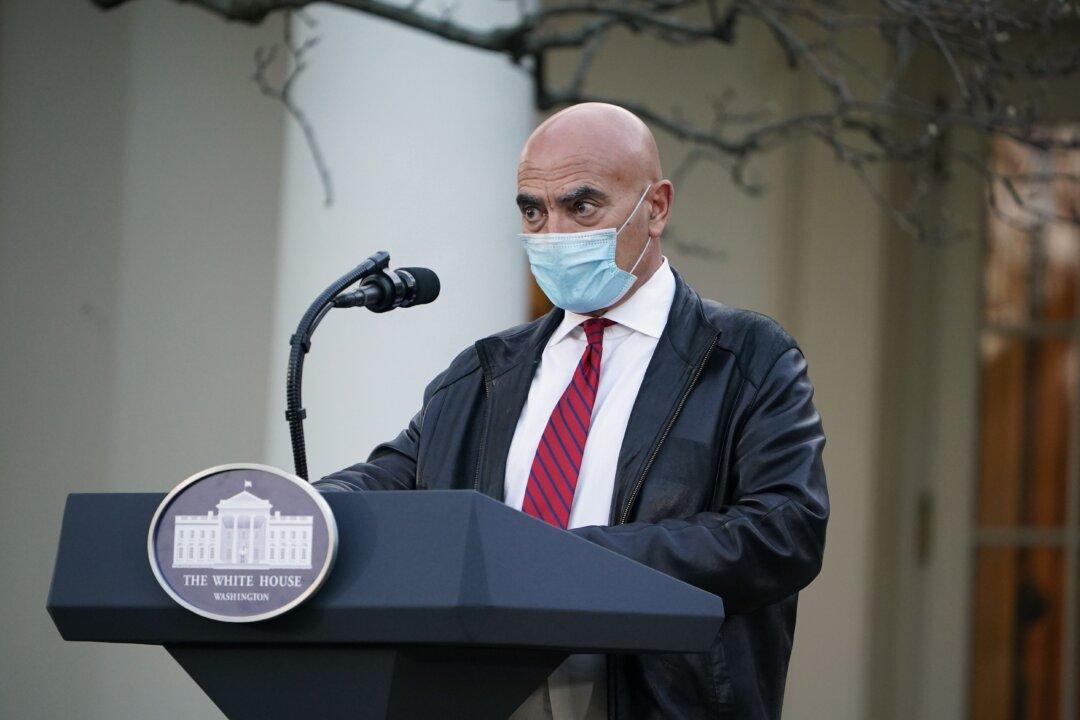A top official heading the Trump administration’s federal vaccine program said on Jan. 3 that the government is considering giving people a half-dose of Moderna’s COVID-19 vaccine in order to get more people inoculated faster.
Dr. Moncef Slaoui, head of Operation Warp Speed, the federal program to surge vaccine development and distribution, told CBS’s “Face the Nation” on Jan. 3 that officials were in talks with Moderna and the Food and Drug Administration (FDA) about the idea.





